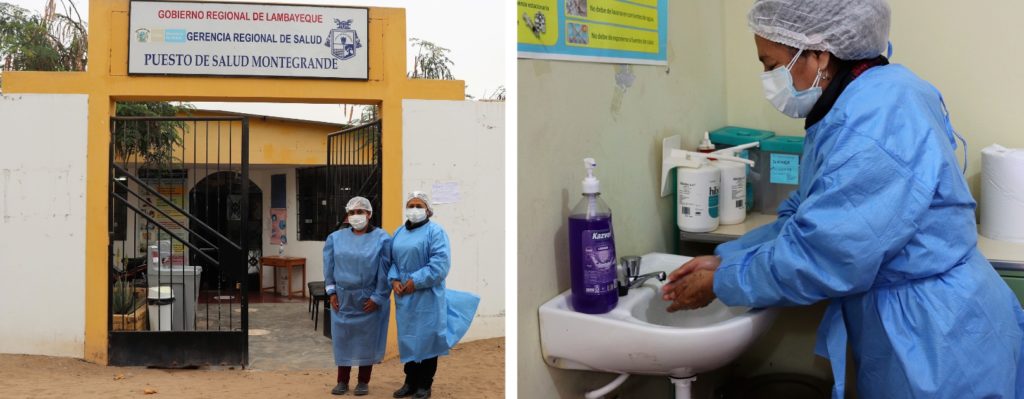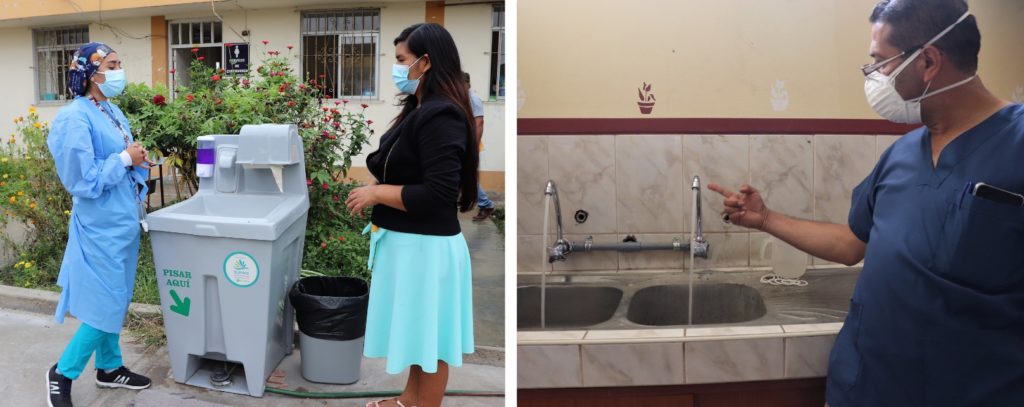After two years of battling COVID-19, it’s clear the pandemic has revealed we are long past due for a systemic healthcare readjustment. Many places around the world are still in need of basic sanitation and access to clean water, proving just how much work still needs to be done.
In a rural region of northern Peru, direct access to water was unattainable at the Monte Grande health center. Healthcare workers had to carry water from the irrigation canal to the health center by foot. “There was no water in the irrigation canal and we had to go to the river to load it. We tried to do this task once a week, with the help of the people of the village, who supported us with carts and donkeys to load the drums or tanks called chavitos,” explains Martha, a health personnel who worked at the center for 27 years. “Every day we used between six and seven liters of water. We tried to ration it so that not much was spent and it was enough for the week.”
While this example is extreme, it is not uncommon. According to the United Nations SDG Data Tracker, only 22% of Peruvians living in rural areas have access to safely managed drinking water. In these rural settings, health centers often suffer from the same lack of infrastructure. That is why Green Empowerment worked with our local partner Water For People and regional governments in northern Peru to improve water and sanitation infrastructure and strengthen education around COVID-19 prevention. The project began in October 2020 and reached 10 health facilities across three Peruvian districts (Cascas, Asunción, and Reque) serving 7,398 people.

Monte Grande was one of these 10 health centers. Working together, we installed a new sanitation system and trained clinic staff to operate the system on their own. In addition, a module for hand washing was established at the entrance of the health center for staff to train visitors on best hygiene practices. Martha shares, “The project brought a positive change. We are more comfortable now because the water we needed has arrived. The most beautiful thing about all this is that they took us into account and we are grateful for it. Now, it is up to us to take care of and maintain this change.”
One of the reasons why Green Empowerment decided to work with Water For People is because they are an organization that prioritizes partnerships with local governments. There is notable criticism of development projects for swooping in and doing work that regional authorities could be completing. This can become damaging because when the NGO leaves, there is often no local infrastructure to support the longevity of the project. Green Empowerment addresses this issue first by partnering with local organizations that have a long-term stake in the region, second by training community members themselves to manage and maintain the system, and third by coordinating with local authorities when possible. Similarly, Water for People’s model of collaborating with local governments is a valuable way to ensure that local stakeholders (with access to resources) stay involved in the project long term. In the recent article Why Well-Meaning NGOs Sometimes Do More Harm than Good the authors point out “Better coordination with governments could help NGOs fill important gaps in public services, rather than merely replicating existing services.”

The benefits of this type of alliance were evident at another one of our projects sites, the Reque Health Clinic, where water systems were in poor condition and inoperative. Clinic staff were using disconnected water tanks for operations and buckets to wash hands. The District Health Network and local municipality did not have the resources or technical knowledge necessary to upgrade the clinic. They knew the work needed to be done, so they worked with Water for People and Green Empowerment to improve connections to toilets, sinks, and storage tanks and deliver crucial training on water system operation and hygiene for COVID 19 prevention. Juan Carlos Quispe Dávila, Chief Physician of the Reque Health Center, explained, “Alliances are important, and if they have a goal of welfare and development, they are much more powerful. They allow us to strengthen the skills of the sector for the benefit of development.”
That is the mission of Green Empowerment – to work with local partners around the world to strengthen communities by delivering renewable energy and clean water. We strongly believe in the power of alliances that build sustainable change for generations to come.
